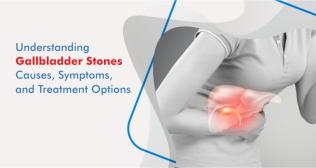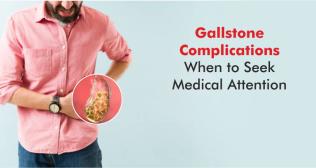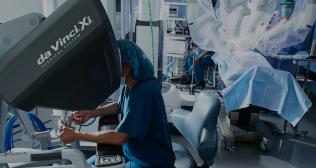
Navigating the Road to Recovery: Overcoming Common Challenges in GI Surgery
Recovery from gastrointestinal (GI) surgery can be a challenging journey, requiring patience, resilience, and comprehensive support. While each patient's experience is unique, there are common hurdles that individuals may encounter along the way. In this blog, we explore strategies for overcoming these challenges and achieving a smooth recovery post-GI surgery.
Pain Management:
Pain management is a paramount concern during GI surgery recovery. Effective pain control strategies, including multimodal analgesia and nerve blocks and newer devices like patient controlled analgesic pumps can help alleviate discomfort and improve overall well-being. It's crucial for patients to communicate openly with their healthcare providers about their pain levels to ensure timely adjustments to their pain management regimen. Although, it is best to prevent the onset of pain rather than manage it when it has already begun.
Nutritional Optimization:
Maintaining adequate nutrition is essential for promoting healing and preventing complications post-GI surgery. Patients may experience challenges such as dietary restrictions, appetite changes, and difficulty tolerating certain foods. Working closely with a registered dietitian to develop a personalized nutrition plan can help address these issues and ensure optimal nutrient intake.
Surgical Site Care:
Proper wound care is critical for preventing infections and promoting healing following GI surgery. Patients should follow their healthcare provider's instructions for wound care diligently, including keeping the incision site clean and dry, changing dressings as instructed, and monitoring for signs of infection such as redness, swelling, or drainage.
Bowel Function:
GI surgery can disrupt normal bowel function, leading to constipation, diarrhoea, or bowel irregularities. Adopting a bowel management regimen, which may include dietary modifications, hydration, and medication, can help regulate bowel movements and alleviate discomfort. Patients should also be mindful of bowel-related symptoms and report any concerns to their healthcare provider promptly. Early reinstitution of diet following surgery has changed outcome of GI Surgery procedure radically and has become an integral part of ERAS Protocol. The method of Early Ambulation has proven to be associated with early return of bowel function and less incidence of a post-operative complication, especially related to lungs, deep vein of the limbs, IV channel sites and Catheter infections.
Emotional Support:
Recovery from GI surgery can take a toll on patients emotionally, leading to feelings of anxiety, depression, or frustration. Seeking support from friends, family, or mental health professionals can provide invaluable emotional support during this challenging time. Additionally, joining support groups or connecting with others who have undergone similar surgeries can offer a sense of camaraderie and encouragement.
In conclusion, overcoming common challenges in GI surgery recovery requires a multidisciplinary approach, encompassing pain management, nutritional support, wound care, bowel management, and emotional well-being. By addressing these challenges proactively and seeking appropriate support, patients can navigate their recovery journey with resilience and achieve optimal outcomes.
Categories
Clear allMeet the doctor

- General Surgery | Robotic Surgery | General Surgery | General and Laparoscopic Surgery | General and Minimal Access Surgery
- Gastroenterology and Hepatobiliary Sciences | Metabolic & Bariatric Surgery
-
25 Years
-
1200



















